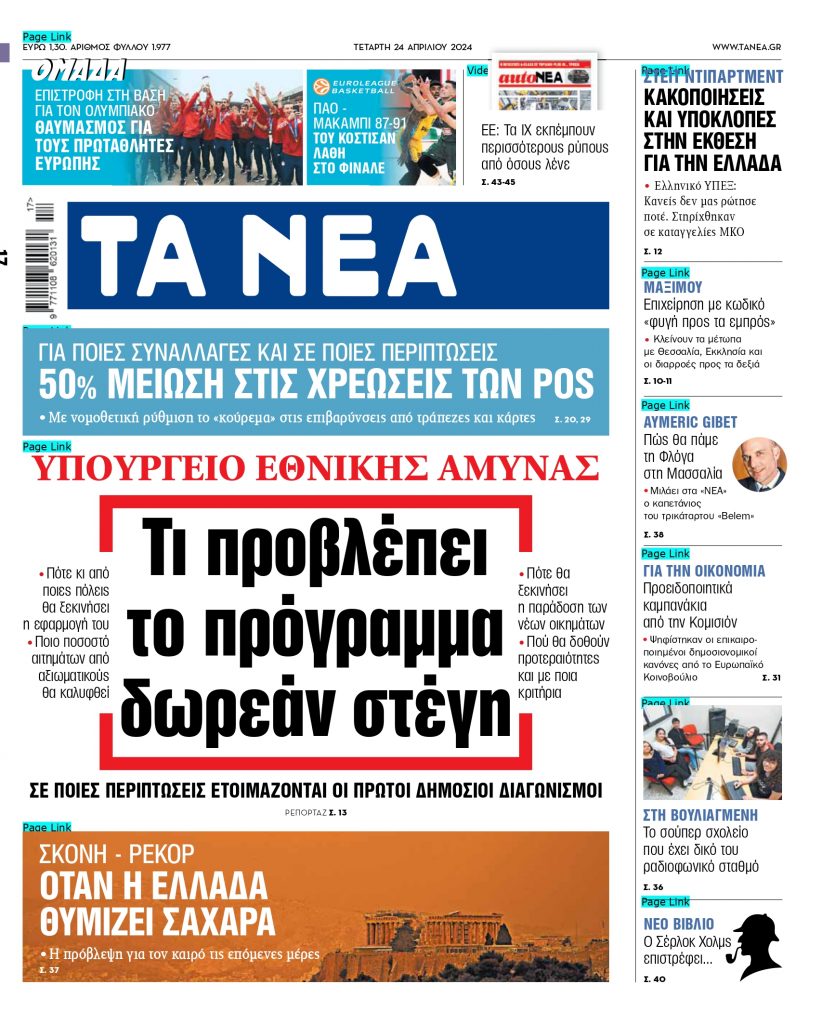Two out of 10 Greeks live in conditions of extreme poverty, as they cannot meet their basic daily needs, including food and heating their homes, according to data released yesterday by Eurostat for 2017.
Greece has the second highest rate of citizens deprived of basic goods, with 21 percent, right behind Bulgaria, according to the data.
Eurostat’s survey examines the economic inability of citizens to cover their expenses for a basket of products and services.
The list includes the inability of citizens to pay bills on time, to keep their homes adequately warm, to handle emergency expenditures, to regularly eat a meal with meat, chicken, fish, or salad, to have a clothes washer, to pay expenses for a car, to take a week’s vacation outside the house, to have a telephone, and to have a television set.
Those who do not meet four of those needs are considered to have serious material want.
Greece’s rate of extreme poverty fell from 22.4 percent in 2016 to 21.1 percent in 2017, yet it still ranks second.
Bulgaria is in first place with 30 percent, and Romania ranks third with 19.4 percent, a drop from its 23.8 percent rate in 2016.
From 2016 to 2017, many countries improved their rating. Italy registered 9.2 percent in 2017 (a 2.9 percentage point drop), Croatia 10.3 percent (a 2.2 percent drop), and Cyprus 11.7 percent (a 1.9 percent drop).
Despite the 21 percent poverty rate, the Greek economy has shown signs of improvement, as the Wall Street Journal reported yesterday.
The report cites the Dutch Spar supermarket chain’s opening of two new stores on the islands of Crete and Skiathos, after leaving Greece two years ago.
The report also notes that Aegean Airlines last month placed a four billion euro order for 42 new Airbus Aircraft and cites Tesla’s plans to open a small research and technology centre in Athens.
The report links the new investments to Greece’s improved economic prospects, as evidenced by the 1.4 percent rise in GDP last year.
This was the first noteworthy growth of the economy since 2007, and the report attributes it to an increase in investment.
- Τι πρέπει να αλλάξει ο Παναθηναϊκός για να περάσει τη Μακάμπι
- Μελίνα Τραυλού, Πρόεδρος Ένωσης Ελλήνων Εφοπλιστών: «Ως ελληνικός εφοπλισμός συμβάλλουμε με έργα που θα προσφέρουν ακόμα καλύτερες υποδομές και υπηρεσίες. Είμαστε και θα είμαστε κοντά σας.»
- Άγριο επεισόδιο ξυλοδαρμού στην Κρήτη – Συνελήφθησαν δύο αδέλφια

